
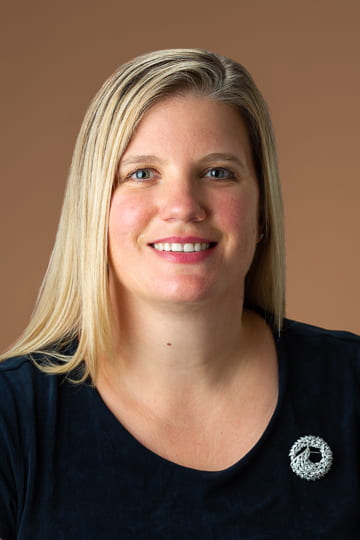
Susan Daniel, Ph.D.
Professor of Chemical and Biomolecular Engineering
Graduate field memberships
Chemistry and Chemical Biology Theoretical and Applied Mechanics Biomedical Engineering Infection and Pathobiology Program in the Department of Microbiology & Immunology, Cornell Veterinary School Faculty Fellow, David R. Atkinson Center for a Sustainable Future, Cornell UniversityHer Education
Postdoctoral Research, Texas A&M University, Department of Chemistry (2005-2007) Ph.D., Chem. Eng., Lehigh University (2005) M.S., Chem. Eng., Lehigh University (2001) B.S., Chem. Eng., Lehigh University (1999)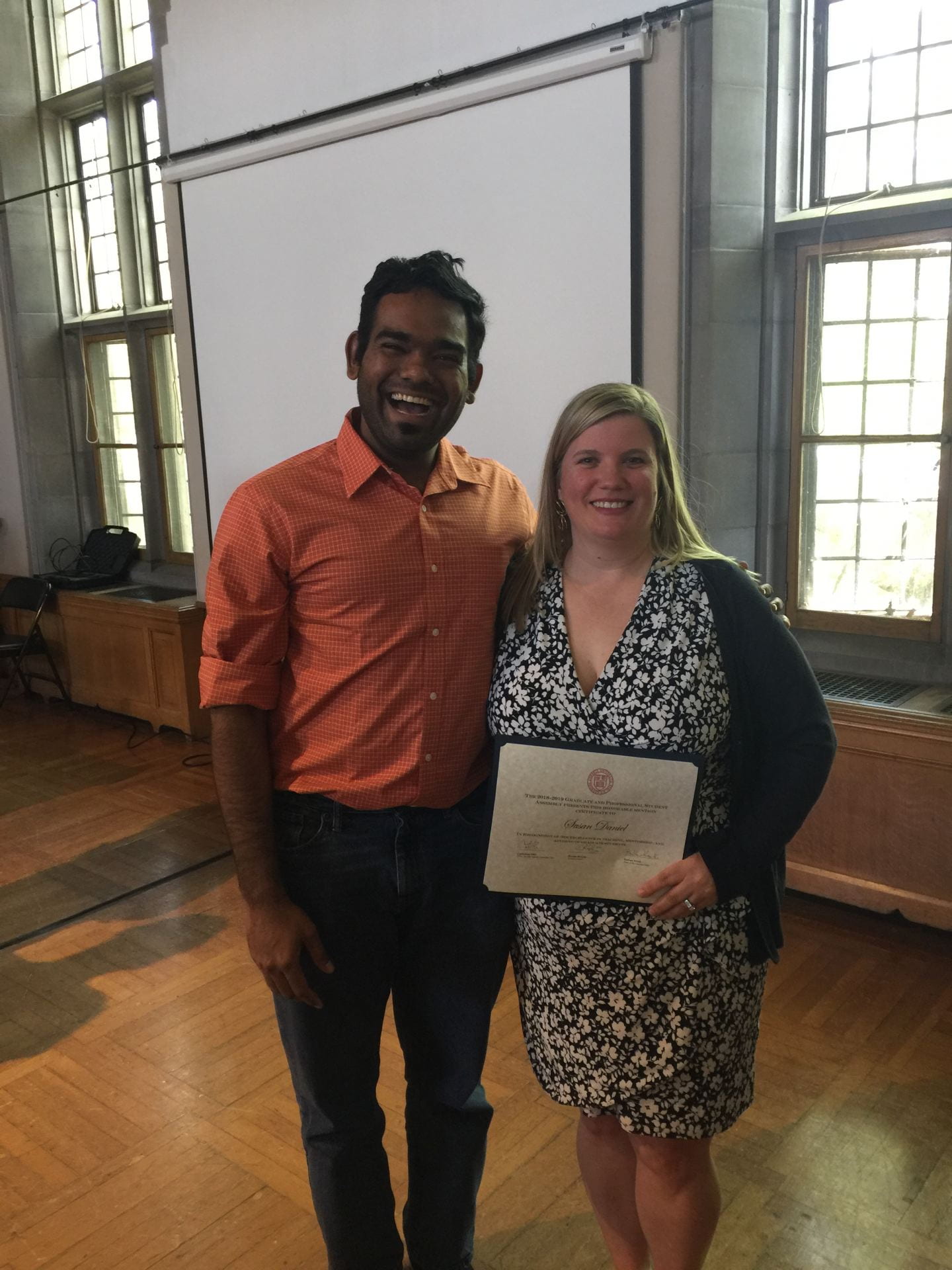
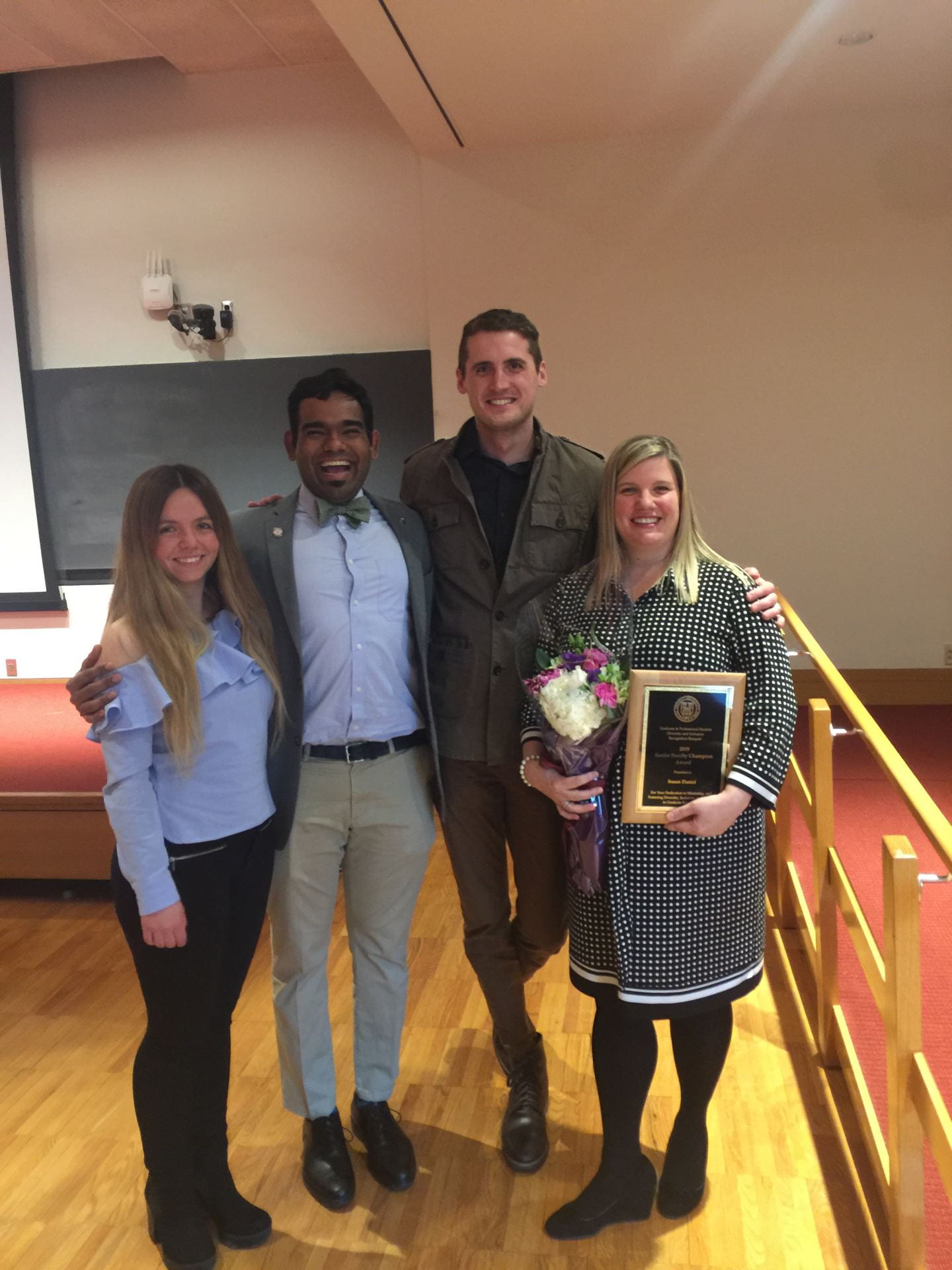
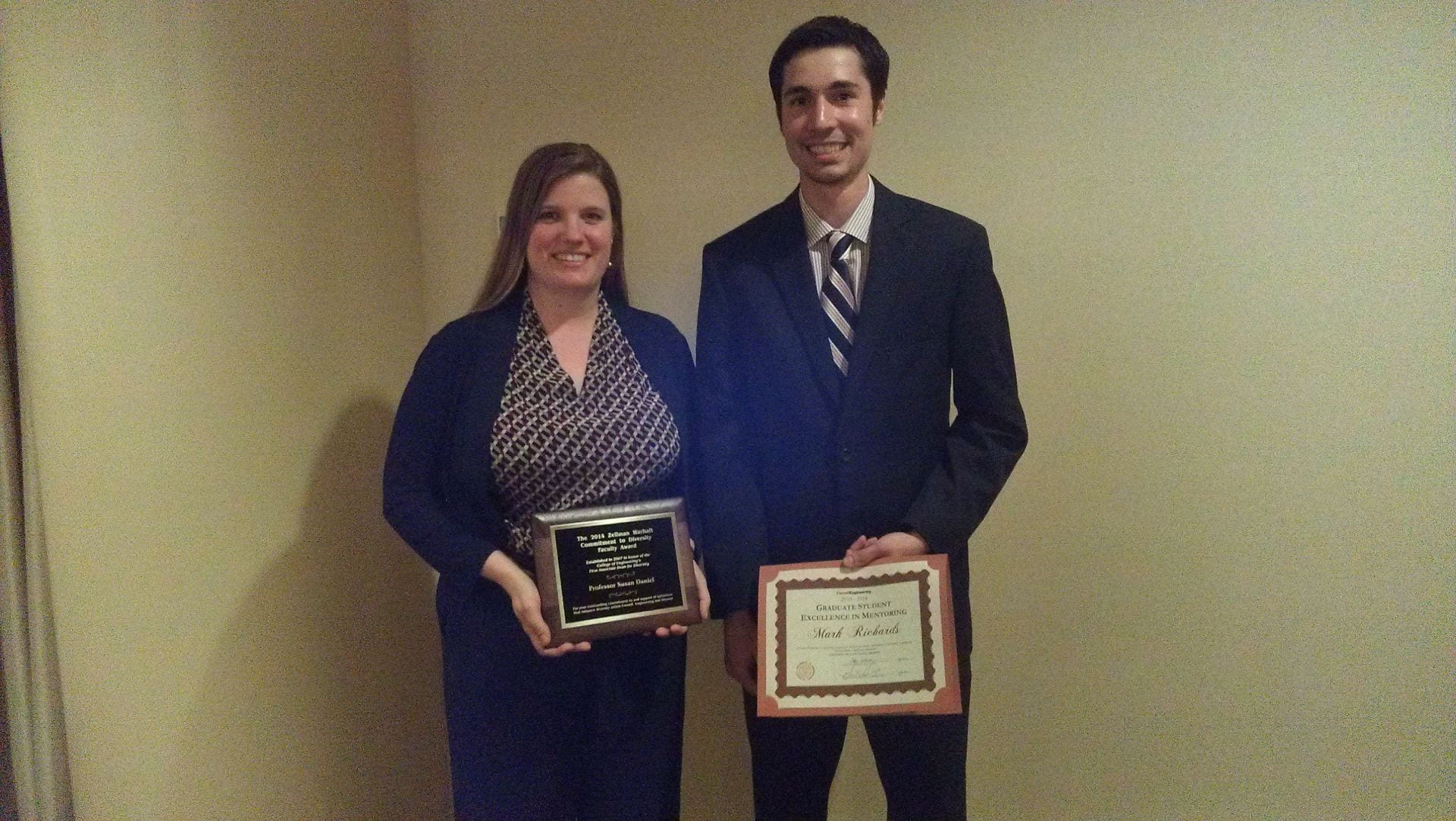
She is the Recipient of
2020 Chair of the Gordon Research Conference on Bioanalytical Sensors 2019 Advanced Career Faculty Champion Award, Cornell University 2019 Graduate and Professional Student Assembly Faculty Award, Honorable Mention 2018 Vice-chair of the Gordon Research Conference on Bioanalytical Sensors 2018 HERS Institute Luce Program for Women in STEM Leadership 2018 Invited technical lecture in Biomolecular Engineering in Engineering Fundamentals in Life Science (Area 15D) AICHE Annual Meeting 2017 College of Engineering Research Excellence Award, Cornell University 2017 Invited Plenary Lecturer in Interfacial Phenomena (Area 1C) AICHE Annual Meeting 2017 Finalist for the 2017 HHMI Professors Program 2016 Top eight shortlist for the international GEDC Airbus Diversity Award 2016 Schwartz Award in Life Sciences, Cornell University 2015 Alice H. Cook Award, for improving the climate for women at Cornell University 2014 Zellman Warhaft Commitment to Diversity Award, College of Engineering, Cornell University 2012 Denice Denton Emerging Leader Award, Anita Borg Institute 2011 NSF CAREER Award 2011 American Society of Engineering Education Outstanding Teaching Award, St. Lawrence Section 2009 President’s Council of Cornell Women Affinito-Stewart Award 2008 NSF BRIGE AwardHer Professional Background
Undergraduate through graduate education
Professor Daniel received her undergraduate and graduate degrees from Lehigh University in the department of chemical engineering. She specialized in the area of surface science, studying the effect of surface wettability gradients on the motion of liquid droplets when they are subjected to coalescence or vibration. She was advised by Professor Manoj Chaudury.
During these pioneering studies, she developed protocols for fluid management in miniaturized fluidic devices. Using her protocols, she created miniaturized batch-wise processes on a chip as an alternative to continuous flow lab-on-a-chip paradigms. Within a small chip, she actuated and controlled drop motion and drop mixing on surfaces. She also carried out thermosensitive reactions inside such drops.
During the final years of her graduate study, she showed how temporal asymmetry of a periodic signal in conjunction with interfacial hysteresis can be used to create ratcheting motion of drops on surfaces. During this phase of research, she collaborated with Noble Laureate, Professor P.G. de Gennes. This led to a joint publication in Langmuir that was subsequently featured in the Analytical Currents news section of Analytical Chemistry in June 2005. Her graduate work resulted in publications in Science, Langmuir, and the Proceedings of the National Academy of Sciences.
Postdoctoral associate experience
In 2005, Professor Daniel joined Professor Paul Cremer’s group at Texas A&M University in the department of chemistry. There she expanded her expertise into the area of biological surface science. Specifically, Dr. Daniel used solid-supported lipid bilayers (SLBs) to model the cell membrane and carry out investigations with a common theme of separations of membrane species.
Dr. Daniel worked on a team which devised an artificial glycocalyx-like structure on SLBs that was used as a nanoscale size-selective filter for protein binding experiments. This work allowed proteins to be screened from the bulk solution above the SLB, based on the protein size, to enhance binding specificity.
These studies inspired Dr. Daniel to use an SLB as a separation medium in order to separate membrane-bound species using electrophoresis within the plane of the SLB. Her work was a significant step towards separating transmembrane species in their native environments to preserve both structure and function. These topics were published in The Journal of the American Chemical Society and featured in the Analytical Currents news section of Analytical Chemistry.
In addition to the separation studies that Dr. Daniel conducted, she also worked on biosensor development and new methods to determine diffusion coefficients in SLBs. Some of this work was also published in The Journal of the American Chemical Society and Langmuir.
As a professor at Cornell University
Professor Daniel began her independent laboratory at Cornell in 2007. The common theme of the Daniel research group has been investigating dynamic phenomena at biological interfaces and chemically patterned surfaces that interact with soft matter. This includes liquids; polymers; and biological materials, like cells, viruses, proteins, and lipids. Her group has:
- Pioneered the development of single particle tracking assays to determine pathogen-host interactions, the development of virus-like proteoliposomes, and supported planar bilayers that facilitate those studies.
- Studied protein-lipid interactions, developed devices to understand protein and glycolipid partitioning into lipid rafts, determined the biological effects of this partitioning.
- Continued work on the interactions of liquid droplets with surfaces and the dynamics of those interactions during vibration and drop coalescence.
Professor Daniel’s teaching experience includes sophomore-level Mass and Energy Balances, senior-level Unit Operations lab, graduate-level Physical and Chemical Kinetics, and the graduate seminar class Principles and Practices of Graduate Research. She also teaches Learning Where You Live courses to freshmen on Self to Social Identities and Women’s Leadership.
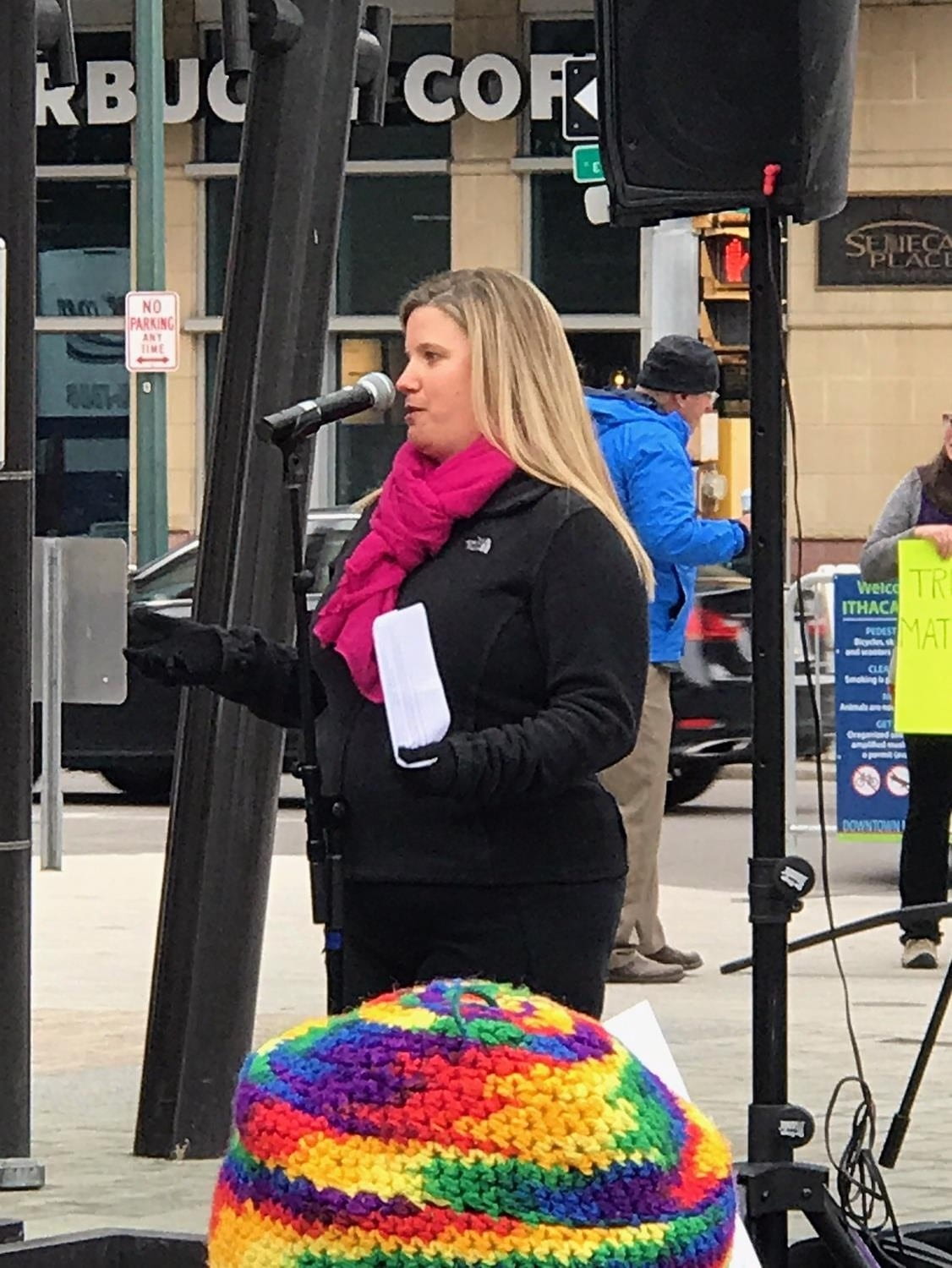
Outreach and Community Service
Professor Daniel has a strong commitment to giving back to her community and fostering the success of young people and students. She also advocates for science, science education, the community college system, and connecting citizens with scientific methods. Read about her efforts and impacts here: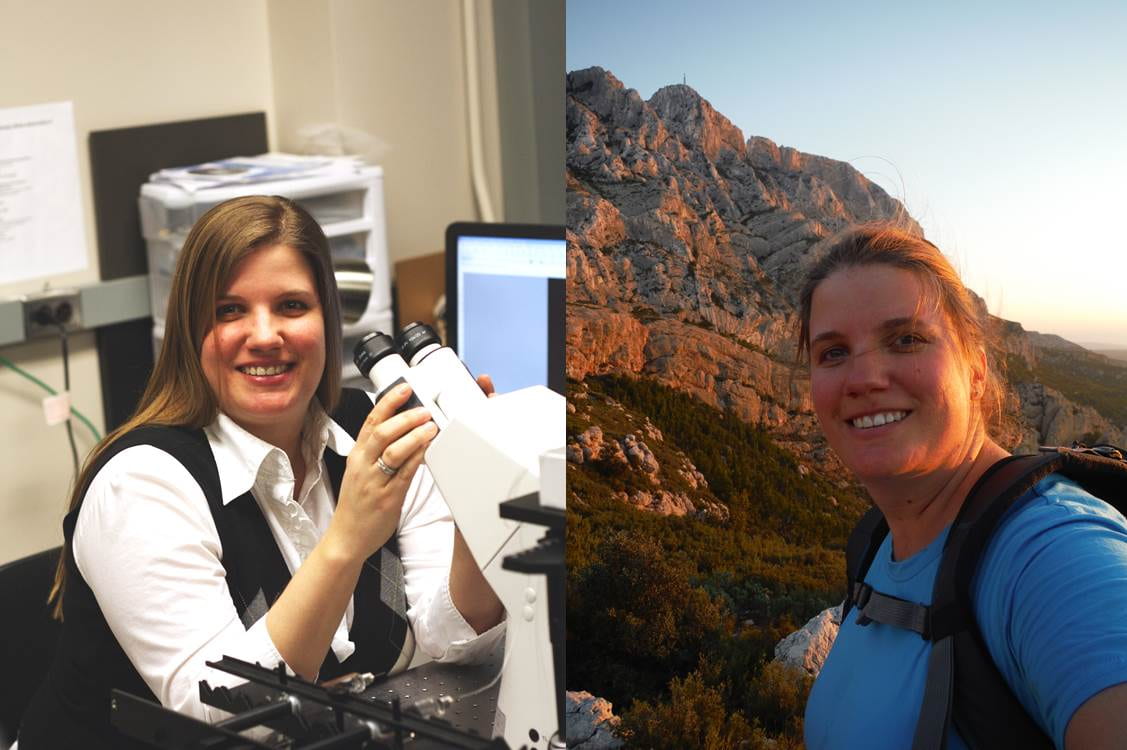
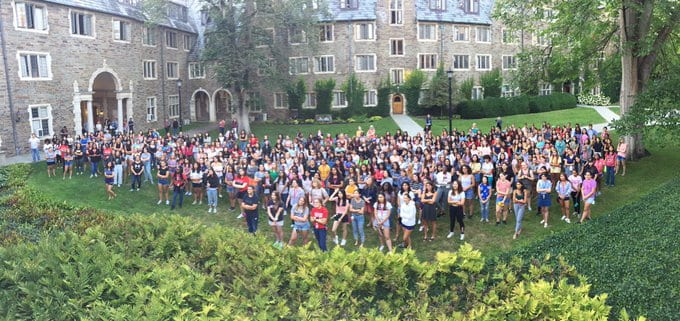
Other Career Achievements and Experiences
Professor Daniel was promoted to the rank of Full Professor in 2020.
She is currently the faculty-in-residence for Balch hall, the all-women freshmen residence on North Campus.
She served as the Director of Graduate Studies for CBE from 2016-2019.
Professor Daniel was promoted to the rank of Associate Professor with tenure in 2014.
She spend 11 months during her 2014-2015 sabbatical as a Visiting Scientist at the Department of Bioelectronics at Ecole Nationale Supérieure des Mines de Saint Etienne, Gardanne, France.
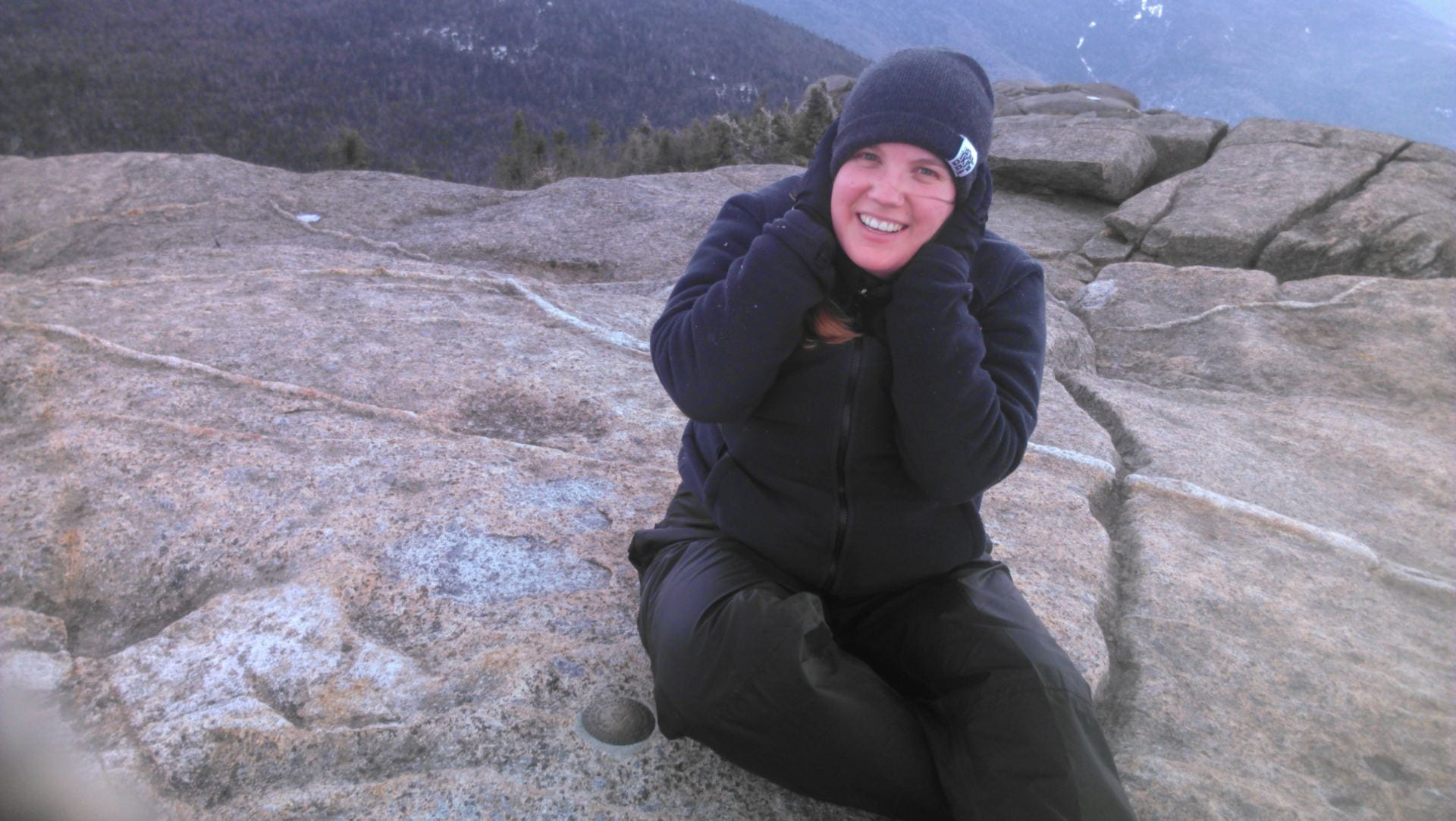
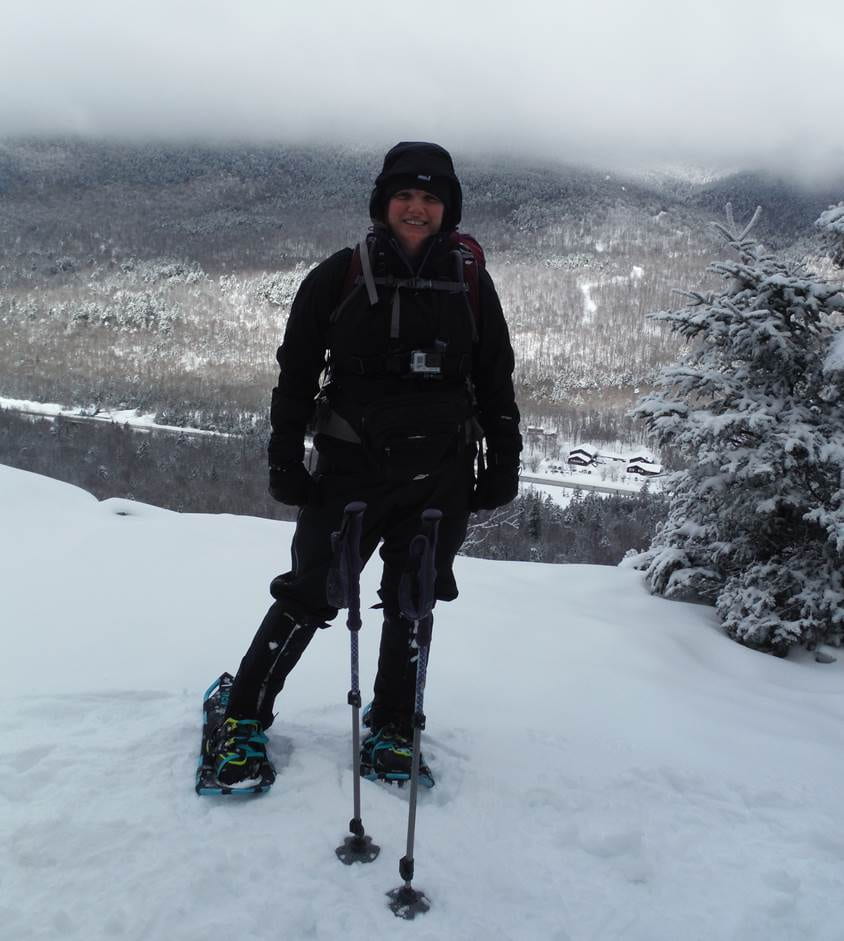
Fun Facts
Professor Daniel believes a work-life balance is important and that being passionate and intentional about what you spend your time doing leads to happiness. Whenever the opportunity presents itself, she enjoys the outdoors. Professor Daniel goes hiking and peak-bagging when it is warm, and snowshoes and snowboards when it is cold. She often includes her team on her adventures.
Professor Daniel has found Ithaca, NY to meet its guarantee that Ithaca is Gorges. There are tons of beautiful trails and hidden waterfalls in the area. The Adirondacks are a few hours away and Professor Daniel is on a quest to complete the ADK 46ers. Check out Professor Daniel’s peakbagger page to see her progress. Within driving distance from Ithaca are the Catskills which also offer hiking. In the winter, Greek Peak is easily accessible for winter sports. Within the town, the hiking trails take you into nature and incredible gorges that boarder the campus for a quick get-away and opportunity to clear your mind in the middle of the day.